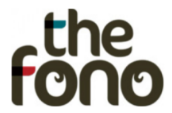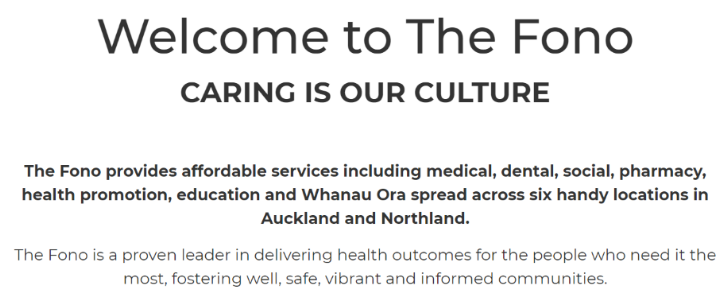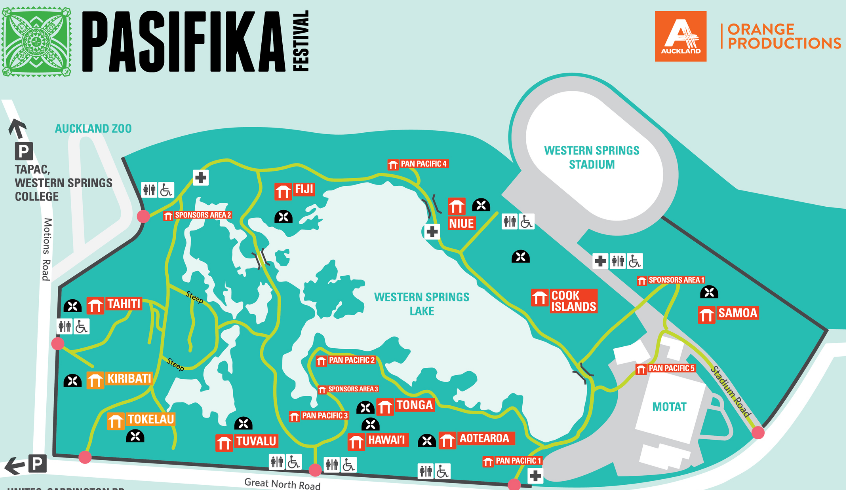RACISM IN COVID-19 LOCKDOWN FOOD DISTRIBUTION
“It is incredible that someone’s race is being used as a criteria for getting emergency food and support. How can you say to a parent who needs food for their hungry children because they are Maori or Pakeha or European [and a family of Indian ethnicity], they cannot get a food parcel. There should be NO ethnic based policies when it comes to welfare and social services. |
Racism in COVID-19 Lockdown Food Distribution
People requesting food parcels are being turned away because of their ethnicity.
THE FONO, a $20 million dollar plus Government-funded organisation, is telling Maori, European and Indian families that they cannot get food parcels because they are not Pacific Islanders.
The tax payer subsidised THE FONO, is tasked with providing free food to help vulnerable people during lockdowns.
Rachael Mario, a Community Volunteer, who has been helping deliver thousands of meals and food parcels over the last few weeks, was disappointed with The Fono’s stance.
She said “It is incredible that someone’s race is being used as a criteria for getting emergency food and support. How can you say to a parent who needs food for their hungry children: because they are Maori or Pakeha or European, they cannot get a food parcel”.
"There should be NO ethnic based policies when it comes to welfare and social services. All humans should be treated equally with dignity."
“The Fono’s motto is “caring is our culture”, yet it appears the caring is only for certain people. This is totally opposite to the Pacific Way and Pasifika culture. We care and help everyone, regardless of race or faith”.
“The Government is asking us all to be kind. What’s the point of “kindness” when there is no compassion and empathy? Where is “kindness” when there is discrimination and racism when it comes to getting food for the vulnerable?”
Mario added, “This is what happens when Government gets the wrong people to deliver services to our communities”.
“It’s the same old story - the privileged get the money, but they do not help the really vulnerable. It is no wonder that the inequities in our nation continue to get worse”.
“it is quite clear The Fono has no real connection to the grassroots. And no real understanding of humanity and social cohesion”.
“This is so devast[a]ting for the already vulnerable - not only do they have to deal with the effects of this long hard lockdown, but also combat this sort of narcissistic discrimination”.
Cherie, who is a New Zealand-born Maori, called last week requesting food. She was asked if she was Maori. And then was told that the Fono does not give food to non-Pasifika people. Cherie was flabbergasted and said “it is unbelievable, in my own country, and as tangata whenua, I am being denied food because of my race”.
Brendon, a New Zealand-born European called The Fono today and they asked him what his nationality was, and then whether he was a Pacific Islander. When he said he was a European Kiwi, he was told the food parcels were not for non-Pasifika people.
Rachael Mario received hundreds of requests from families affected by the current lockdown restrictions. These were ordinary families, from all ethnic backgrounds.
She initially contacted the Ministry of Pacific Peoples to see if they could help people with food support. The Ministry gave her The Fono phone number to get help.
She called and checked with The Fono, and was told they could help. So she started giving people The Fono phone number to contact. But she started getting messages back from some people, that The Fono was not able to help them because of their ethnicity.
Mario then called The Fono on behalf of a family of Indian ethnicity, and after being questioned on that families nationality and ethnicity, was told they could not get the food parcel. The Fono told her the food was only for Pasifika people.
Mario said “It is very very sad. The end result is, some of those families that really need food, are not getting it”.
“And what’s even worse is that already vulnerable people are being subjected to racism, when all they are trying to do is get help for their families.”
“People have food insecurities for many reasons. Some are afraid to go out and shop. Others have lost incomes or are on reduced wages”.
“Where is the love and compassion?”
For more information, contact Rachael Mario 021-2559956 / [email protected]
People requesting food parcels are being turned away because of their ethnicity.
THE FONO, a $20 million dollar plus Government-funded organisation, is telling Maori, European and Indian families that they cannot get food parcels because they are not Pacific Islanders.
The tax payer subsidised THE FONO, is tasked with providing free food to help vulnerable people during lockdowns.
Rachael Mario, a Community Volunteer, who has been helping deliver thousands of meals and food parcels over the last few weeks, was disappointed with The Fono’s stance.
She said “It is incredible that someone’s race is being used as a criteria for getting emergency food and support. How can you say to a parent who needs food for their hungry children: because they are Maori or Pakeha or European, they cannot get a food parcel”.
"There should be NO ethnic based policies when it comes to welfare and social services. All humans should be treated equally with dignity."
“The Fono’s motto is “caring is our culture”, yet it appears the caring is only for certain people. This is totally opposite to the Pacific Way and Pasifika culture. We care and help everyone, regardless of race or faith”.
“The Government is asking us all to be kind. What’s the point of “kindness” when there is no compassion and empathy? Where is “kindness” when there is discrimination and racism when it comes to getting food for the vulnerable?”
Mario added, “This is what happens when Government gets the wrong people to deliver services to our communities”.
“It’s the same old story - the privileged get the money, but they do not help the really vulnerable. It is no wonder that the inequities in our nation continue to get worse”.
“it is quite clear The Fono has no real connection to the grassroots. And no real understanding of humanity and social cohesion”.
“This is so devast[a]ting for the already vulnerable - not only do they have to deal with the effects of this long hard lockdown, but also combat this sort of narcissistic discrimination”.
Cherie, who is a New Zealand-born Maori, called last week requesting food. She was asked if she was Maori. And then was told that the Fono does not give food to non-Pasifika people. Cherie was flabbergasted and said “it is unbelievable, in my own country, and as tangata whenua, I am being denied food because of my race”.
Brendon, a New Zealand-born European called The Fono today and they asked him what his nationality was, and then whether he was a Pacific Islander. When he said he was a European Kiwi, he was told the food parcels were not for non-Pasifika people.
Rachael Mario received hundreds of requests from families affected by the current lockdown restrictions. These were ordinary families, from all ethnic backgrounds.
She initially contacted the Ministry of Pacific Peoples to see if they could help people with food support. The Ministry gave her The Fono phone number to get help.
She called and checked with The Fono, and was told they could help. So she started giving people The Fono phone number to contact. But she started getting messages back from some people, that The Fono was not able to help them because of their ethnicity.
Mario then called The Fono on behalf of a family of Indian ethnicity, and after being questioned on that families nationality and ethnicity, was told they could not get the food parcel. The Fono told her the food was only for Pasifika people.
Mario said “It is very very sad. The end result is, some of those families that really need food, are not getting it”.
“And what’s even worse is that already vulnerable people are being subjected to racism, when all they are trying to do is get help for their families.”
“People have food insecurities for many reasons. Some are afraid to go out and shop. Others have lost incomes or are on reduced wages”.
“Where is the love and compassion?”
For more information, contact Rachael Mario 021-2559956 / [email protected]









